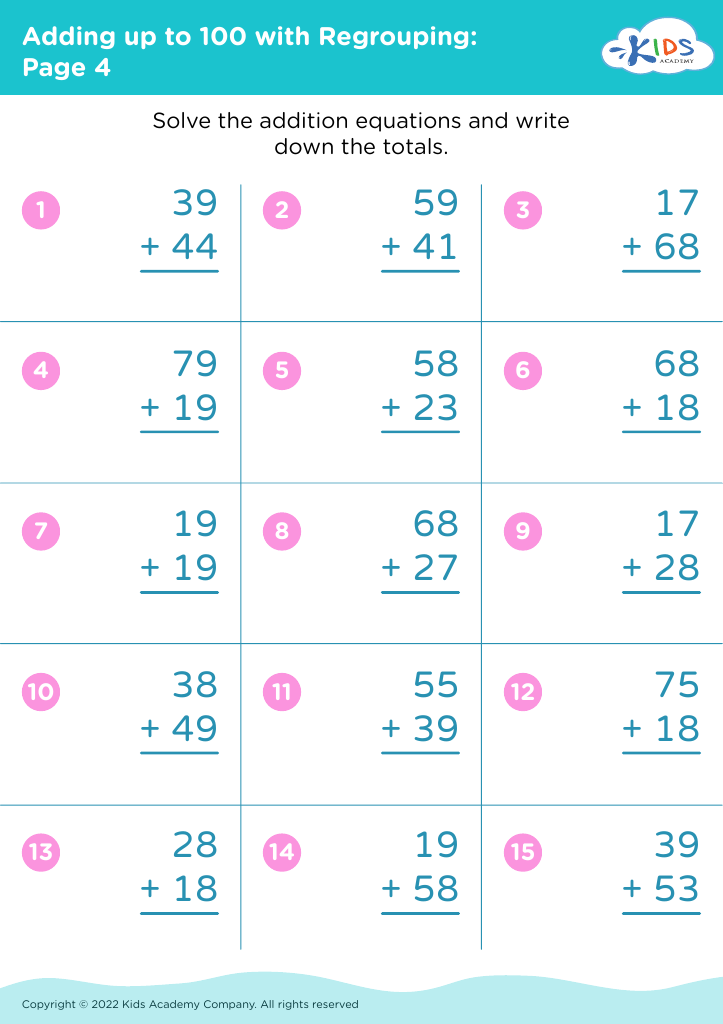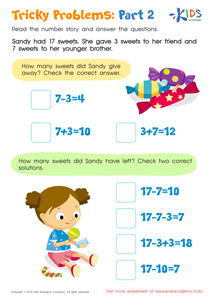Vocabulary Building Grade 2 Adding up to 100 Worksheets
3 filtered results
-
From - To
Boost your child's vocabulary and math skills simultaneously with "Vocabulary Building Grade 2 Adding up to 100 Worksheets" from Kids Academy! Specially designed for second graders, these engaging worksheets integrate vocabulary enrichment within fun math exercises that emphasize addition up to 100. Through interactive activities, children will enhance their language skills while mastering essential math concepts, preparing them for future academic success. Encourage your child to build a strong educational foundation by incorporating these worksheets into their routine—making learning both enjoyable and rewarding. Explore our comprehensive collection today and watch your young learner thrive!
Vocabulary building is crucial for second graders as it forms the foundation for effective communication and literacy development. When specific focus is given to building a diverse and broad vocabulary, children gain the ability to understand and articulate a wide range of concepts and emotions, fostering better reading comprehension and more expressive writing.
Parents and teachers should particularly care about reaching a robust vocabulary totaling around 100 new terms because it significantly enhances the child's speaking, listening, reading, and writing skills. Early vocabulary development is linked to increased academic success; children with a richer vocabulary can understand more complex texts, follow instructions more accurately in all subjects, including math and science, and engage more deeply in classroom discussions.
Moreover, as children encounter new words, they also work on their critical thinking skills by learning to infer meanings and relationships between words. This cognitive boost can lead to accelerated learning and confidence, which are essential traits for continual academic growth in subsequent years.
Finally, building a strong vocabulary fosters a love for learning and curiosity. Children become more eager to read and explore new subjects when they feel equipped with the words needed to navigate their worlds. This intrinsic motivation can lead to a lifelong passion for education, opening doors to endless possibilities as they grow.





















